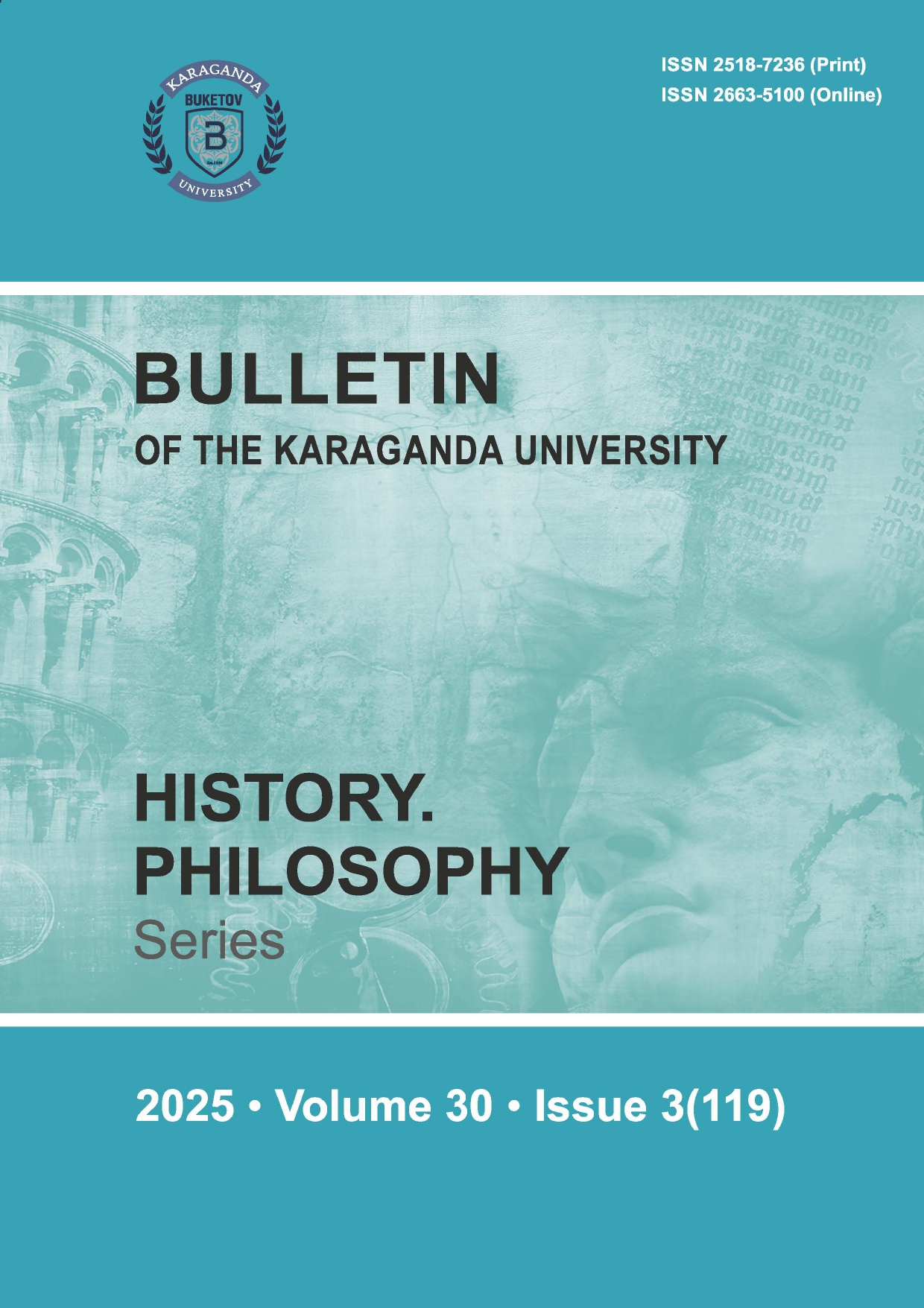The confiscation campaign in Central Kazakhstan in the late 1920s: the impact of the role of local government and the specifics of traditional society
DOI:
https://doi.org/10.31489/2025hph3/102-115Keywords:
Central Kazakhstan, confiscation, rich, middle peasants, poor, kinship, power, influence, oral sourceAbstract
This article examines the characteristics and consequences of the confiscation campaign carried out in central Kazakhstan in the late 1920s, as well as the changes related to the local situation and the influence of family ties on the confiscation process. These themes are identified using archival data, confirmed and analysed through oral materials. The article deals with the causes and consequences of the unrest during the confiscation process and the influence of propaganda on the course of the confiscation campaign. For various reasons, the confiscation was not carried out in accordance with the instructions of the higher state and
executive authorities. Identifying and specifying these reasons helps researchers to understand the consequences of the political and social situation in society at the time. The consequences of these circumstances could also be observed in later events that influenced the way of life and daily life conditions during the Soviet period.In such difficult times, it was crucial for the Kazakhs to seek help through family ties and partnerships. These aspects are reflected not only in oral traditions, but also in archival documents. These events had both positive and negative consequences for the local population. The negative consequences of
these Kazakh peculiarities resulted in the agrarian reforms becoming measures against the common people.




